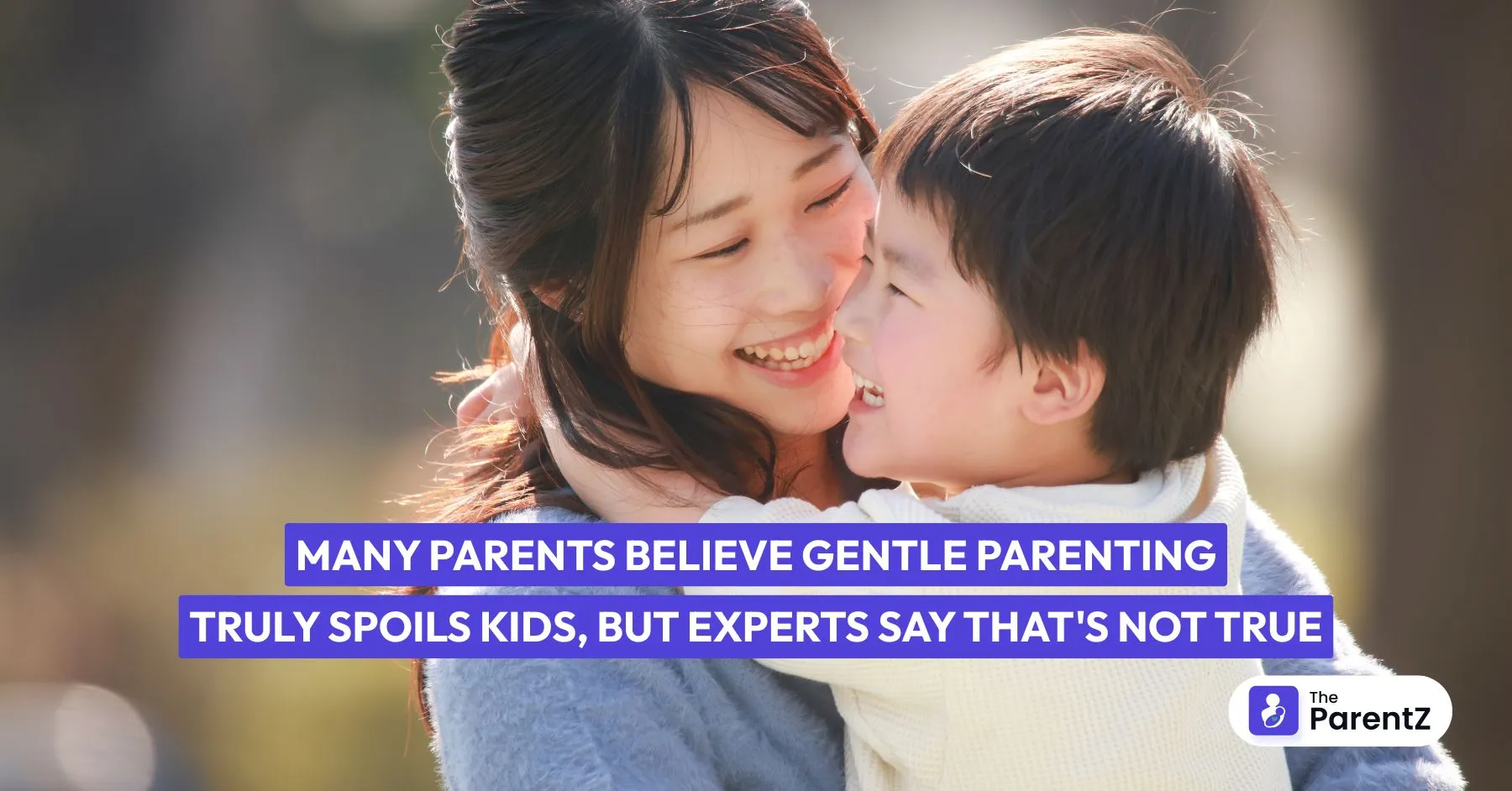If you've ever calmly asked your toddler to stop hitting the dog, only to be met with judgmental stares or unsolicited advice like “He needs discipline!”, you’re not alone. Gentle parenting often gets misunderstood—especially by relatives who swear by time-outs, raised voices, and the good ol’ “Because I said so.”
To many, this approach seems soft, permissive, and downright dangerous for discipline. The fear? That you're raising entitled kids who will crumble at the first “no.” But experts—and plenty of emotionally healthy grown-ups who were raised gently—say that’s not just untrue, it’s a myth rooted in misunderstanding.
Read this article to explore how gentle parenting doesn’t spoil your kids but lets them being themself. Here we will debunk the myth and know what experts say.
What Is Gentle Parenting?
Gentle parenting is about parenting with empathy, respect, and boundaries—not fear, control, or punishment. In short, connection over correction. Instead of demanding obedience, it seeks cooperation through understanding a child’s developmental needs.
That doesn’t mean there are no consequences. It just means those consequences are thoughtful, respectful, and logical. For instance, if your child throws food, the consequence might be ending the meal—not yelling or shaming them.
Why the Spoiling Myth Persists?
One big reason gentle parenting gets a bad rap? People mistake kindness for weakness. They think discipline has to hurt to work. But research says otherwise.
According to the American Psychological Association, authoritative parenting—a style that’s high in warmth and clear in expectations—produces kids who are more responsible, independent, and emotionally resilient than those raised in strict, authoritarian homes.
Translation? You can be firm and kind at the same time.
What Experts Actually Say
Child psychologist Dr. Laura Markham, founder of Aha! Parenting says, “When children feel connected to their parents, they want to cooperate. Discipline means to teach—not to punish.”
Neuroscience backs this up. Studies show that harsh discipline activates a child’s fear center, making it harder for them to learn from mistakes. On the flip side, a gentle approach supports the development of the prefrontal cortex—the part of the brain responsible for self-regulation and decision-making.
In other words, yelling might shut things down in the moment, but gentle parenting builds long-term emotional intelligence.
The Hard Truth? It’s Actually Harder Than Yelling
Choosing not to yell, not to punish out of frustration, and not to bribe or threaten—requires serious emotional regulation from the parent. Gentle parenting is not lazy. It’s deeply intentional.
It means staying calm when you’re exhausted. It means trying to understand what your child’s meltdown is really saying. It means teaching—not reacting.
Truly—it’s not always glamorous or Instagram-worthy. But it’s real. And it works.
Will Gentle Parenting Spare the Rod and Spoil the Child?
The short answer is— you're not spoiling your child when you treat them with empathy. You're not weakening them when you give them the tools to express emotions. You're not coddling them when you teach boundaries through love instead of fear.
You're raising a human who will know how to feel, reflect, and relate—not just react.
And that’s not spoiling. That’s preparing.
Conclusion
So the next time someone rolls their eyes at your calm tone or says your child needs “tough love,” remember this: Gentle parenting doesn’t mean no boundaries. It means better ones.
And raising kind, self-aware, emotionally healthy humans? That’s anything but soft.
It’s strong. It’s wise. It’s the kind of parenting the world could use more of.





Be the first one to comment on this story.